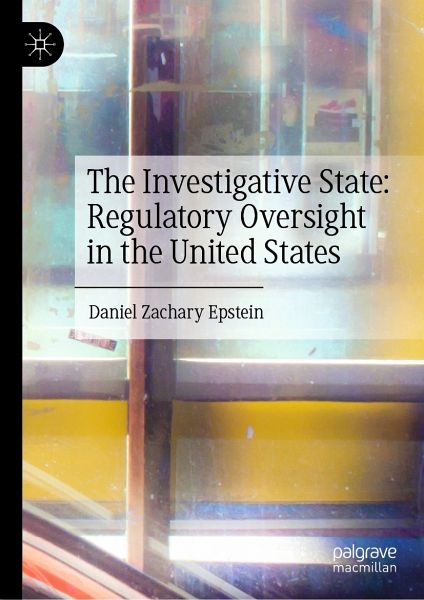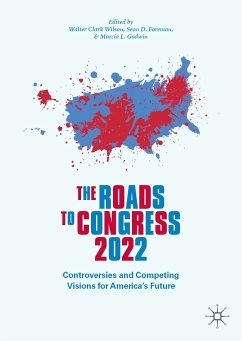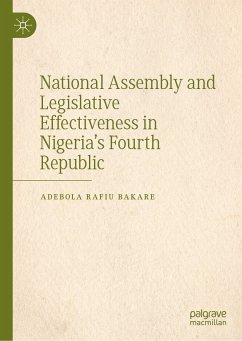
The Investigative State: Regulatory Oversight in the United States (eBook, PDF)
Versandkostenfrei!
Sofort per Download lieferbar
88,95 €
inkl. MwSt.
Weitere Ausgaben:

PAYBACK Punkte
44 °P sammeln!
This book is a timely examination of congressional oversight in the United States, serving as a definitive guide for scholars and political, legal, and media observers seeking to navigate contemporary conflicts between Congress and the White House. Author Daniel Epstein has spent his professional career as a lawyer serving all sides of the regulatory process: he ran investigations for Congress, defended the White House from congressional oversight, and represented individuals, nonprofit news organizations, and entrepreneurs in federal court to fight for regulatory transparency and fairness. Ep...
This book is a timely examination of congressional oversight in the United States, serving as a definitive guide for scholars and political, legal, and media observers seeking to navigate contemporary conflicts between Congress and the White House. Author Daniel Epstein has spent his professional career as a lawyer serving all sides of the regulatory process: he ran investigations for Congress, defended the White House from congressional oversight, and represented individuals, nonprofit news organizations, and entrepreneurs in federal court to fight for regulatory transparency and fairness. Epstein uses historical and observational data to argue that the modern federal bureaucracy did not begin as a regulatory state but as an investigative state. The contemporary picture of Congress having empowered the bureaucracy to set policy through rules is a relatively recent development in the political development of administrative law. The book's novel econometric models and historical analyses force a shift in how legal scholars and judges understand delegation, congressional oversight, and agency investigations.
Dieser Download kann aus rechtlichen Gründen nur mit Rechnungsadresse in A, B, BG, CY, CZ, D, DK, EW, E, FIN, F, GR, HR, H, IRL, I, LT, L, LR, M, NL, PL, P, R, S, SLO, SK ausgeliefert werden.












